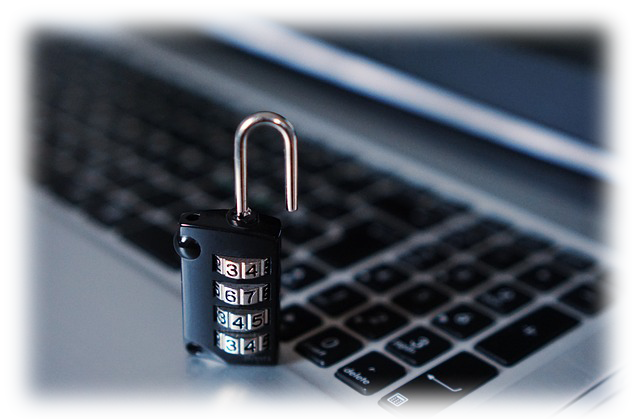Main Content
This Section's arrow_downward Theme Info Is:
- Background Image: ""
- Theme: "light-theme"
- Header Style: "purple_dominant"
- Card Height Setting: "consistent_row_height"
- Section Parallax: "0"
- Section Parallax Height: ""
What is Cyber Security?
Cybersecurity is the practice of protecting systems, networks, and programs from digital attacks. UWT is intent on making sure Students, Staff, and Faculty are knowledgeable of the various ways outside groups are attempting to access our protected information.
These cyberattacks are usually aimed at accessing, changing, or destroying sensitive information; extorting money from users via ransomware; or interrupting normal business processes. The IT staff works hard on implementing standards that protect our data, but part of that relies on you.
Implementing effective cybersecurity measures is particularly challenging today because there are more devices than people, and attackers are becoming more innovative. Users must understand and comply with basic data security principles. Part of the UWT protection wall is training that is required of Staff and Faculty.
What forms do Cyber Security threats come in?

Phishing - Phishing is the practice of sending fraudulent emails that resemble emails from reputable sources. The aim is to steal sensitive data like credit card numbers and login information.
Social Engineering - Social engineering is a tactic that adversaries use to trick you into revealing sensitive information. They can solicit a monetary payment or gain access to your confidential data.
Ransomware - Ransomware is a type of malicious software. It is designed to extort money by blocking access to files or the computer system until the ransom is paid.
Malware - Malware is a type of software designed to gain unauthorized access or to cause damage to a computer.
Why is Cyber Security Important to the University?
Getting hacked does not only allow outside subversive groups to gain access to our systems and possible confidential information. It can also ruin the relationship between the university and other businesses, organizations, or people associated with the University. It can also cost the University a lot of time and money to attempt to recover from even the simplest of breaches.
For more information, see our Safe and Secure Computing page.
This Section's arrow_downward Theme Info Is:
- Background Image: ""
- Theme: "light-theme"
- Header Style: "purple_dominant"
- Card Height Setting: "consistent_row_height"
- Section Parallax: "0"
- Section Parallax Height: ""
What would you do in the following situations?
Accordions don't have settings which need debugging arrow_downward
Main points to keep in mind:
- Never leave UW equipment in an unattended car.
- Never share your passwords.
- Encrypt sensitive Data.
For more information please see this link:
Or contact the IT help desk.
Main points to keep in mind:
- If away from Campus, contact the police and file a police report, making note of the police report number they provide you.
- If on Campus, contact Campus Security.
- In either case, contact the IT help desk and let them know what transpired.
For more information please see this link:
or contact the IT help desk.
Main points to keep in mind:
- Immediately let the send know that you cannot accept information like this via email.
- Delete the information from your system completely.
For more information please see this link:
Or contact the IT help desk.
Main Point to keep in mind:
- Every employee/student is expected to store confidential information on approved cloud storage solutions.
For more information please see this link:
Data Protection Policy for Portable Devices
Or contact the IT help desk.
Main point to keep in mind:
- Please bring it to the IT Help Desk for it's yearly checkup.
For more information please see this link:
Faculty Laptop Use - Procurement policies and procedures
Or contact the IT help desk.
Main points to keep in mind:
-
Log off the instructor workstation and turn off the classroom lighting
-
Remind students to log off the student workstations
-
Check doors to ensure they are locked and closed
-
Contact Campus Safety and Security if there is an issue securing the classroom door
For more information please see this link:
Computer Classroom Security Policy
Or contact the IT help desk.
Main point to keep in mind:
- Please contact the IT Help Desk for purchase and installation at least one month before the quarter starts.
For more information please see this link:
Computer hardware, software and AV equipment purchase policy
Or contact the IT help desk.
Irrespective of the funding source, since the computer will be state property, this guidance applies:
Computer hardware, software and AV equipment purchase policy.
Feel free to reach out to tachelp@uw.edu, or by calling 253-692-HELP. Additional information can also be found at CISO (https://ciso.uw.edu)
Early involvement with IT and Purchasing as you select a vendor will help you in the long run. If a vendor cannot meet the requirements, they could pose a security risk.
This Cards' arrow_downward Theme Info Is:
- Theme: gold-theme
- Show Full Image: Unspecified. Using Default: "Fill Container, Allow Cropping"
- Image Position: Unspecified. Using Default: "Center Center"
Considering a software/hardware purchase?
This Cards' arrow_downward Theme Info Is:
- Theme: gold-theme
- Show Full Image: Unspecified. Using Default: "Fill Container, Allow Cropping"
- Image Position: Unspecified. Using Default: "Center Center"
Did you know?
The email policy at UW Tacoma is unique amongst the three campuses and was designed with our urban serving community in mind.
IoT stands for Internet of Things. IoT devices can be appliances, equipment or environmental sensors, to name a few.
To learn more about IoT, please click here.
Cybersecurity Awareness Training is required of all new employees as a part of the onboarding process and annually for all employees. It is designed to inform you of the steps you can take to protect yourself, and our organization from malicious cyber activity.
